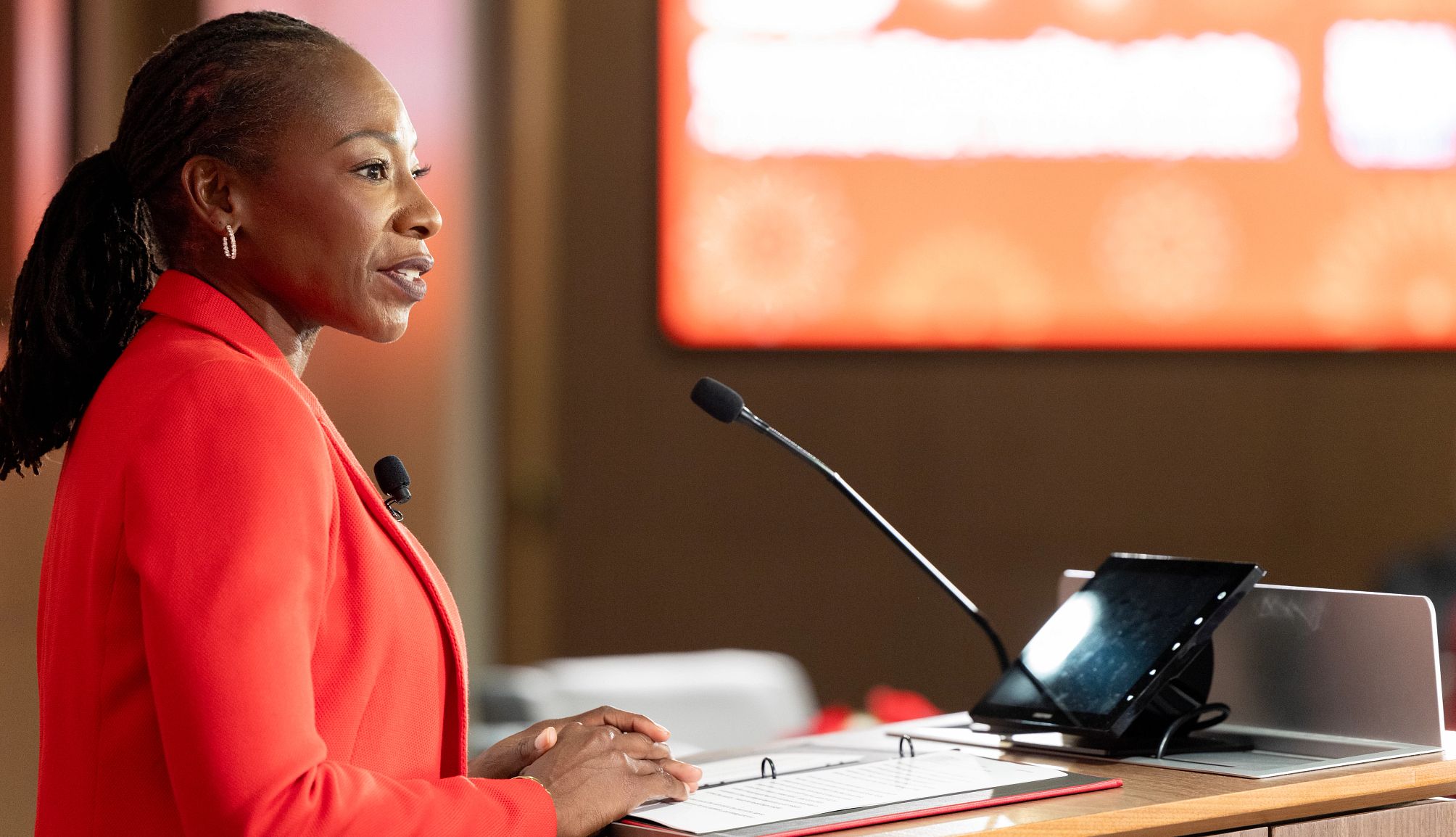AARP Hearing Center
To mark this year’s 90th anniversary of Social Security, AARP has held hundreds of events and activities around the country and engaged millions of older Americans.
In Maine, AARP volunteers joined Gov. Janet Mills as she signed a proclamation honoring Social Security. In Iowa, they offered games and giveaways at the state fair to educate their neighbors about the importance of Social Security. In Wisconsin, they celebrated with baseball fans, handing out slices of birthday cake at a minor-league game.
In June, AARP members turned out in force to lobby Capitol Hill lawmakers on Social Security, caregiving and other issues crucial to older Americans’ money, health and well-being. In August, some 50 red-shirted volunteers staged a Social Security takeover in New York City’s Times Square.
Capping it all off, Dr. Myechia Minter-Jordan, AARP’s CEO, led a Town Hall on Sept. 25 where she and other AARP leaders answered members’ questions and shared our determination to keep fighting to protect and strengthen Social Security.


Fighting for the future
More than 70 million people received Social Security payments in August 2025. Years of AARP polling shows that Americans across the political spectrum agree on Social Security’s importance, Minter-Jordan said in her opening remarks.
“The numbers confirm what we already know: Americans still consider Social Security one of America’s most important initiatives,” she said. “In fact, 85 percent of people 50-plus say that it is essential. Not helpful — essential.”
Join Our Fight to Protect Social Security
You’ve worked hard and paid into Social Security with every paycheck. Here’s what you can do to help keep Social Security strong:
- Add your name and pledge to protect Social Security.
- Find out how AARP is fighting to keep Social Security strong.
- Get expert advice on Social Security benefits and answers to common questions.
- AARP is your fierce defender on the issues that matter to people 50-plus. Become a member or renew your membership today.
More than 4 in 10 Americans age 65 and older who collect Social Security derive at least half of their income from it, according to Social Security Administration data. For about 1 in 7, it’s nearly all their income. Without Social Security, the poverty rate in that age group would rise from 10 percent to 37 percent, Minter-Jordan said.
“These aren’t just statistics,” she added. “They represent millions of American families who can live life with dignity because Social Security works as it was intended.”
But despite how successful — and popular — Social Security is, it faces serious challenges. Social Security’s trustees project that its trust funds will run short in 2034 unless Congress acts to shore up the program’s finances. Absent such action, Social Security would only be able to pay about 80 percent of scheduled benefits.
The looming shortfall has left Americans confused and concerned.
Since its inception, AARP has worked to keep Social Security strong, Minter-Jordan said. In past years, AARP has successfully fought for annual, automatic cost-of-living adjustments and against plans to privatize Social Security by tying benefits to the stock market. As a result, even when the market plunged, as it did in 2008 and 2020, Social Security payments stayed secure, unlike income from investments.





































































More From AARP
At Key Times, AARP Stood Up for Social Security
Our millions of members have rallied time and again to tackle threats to the program
Social Security’s Impact Across Generations
Social Security has helped people live with dignity as they age
How Social Security and Medicare Changed Aging
Historic programs transformed the financial and health care landscape for older Americans